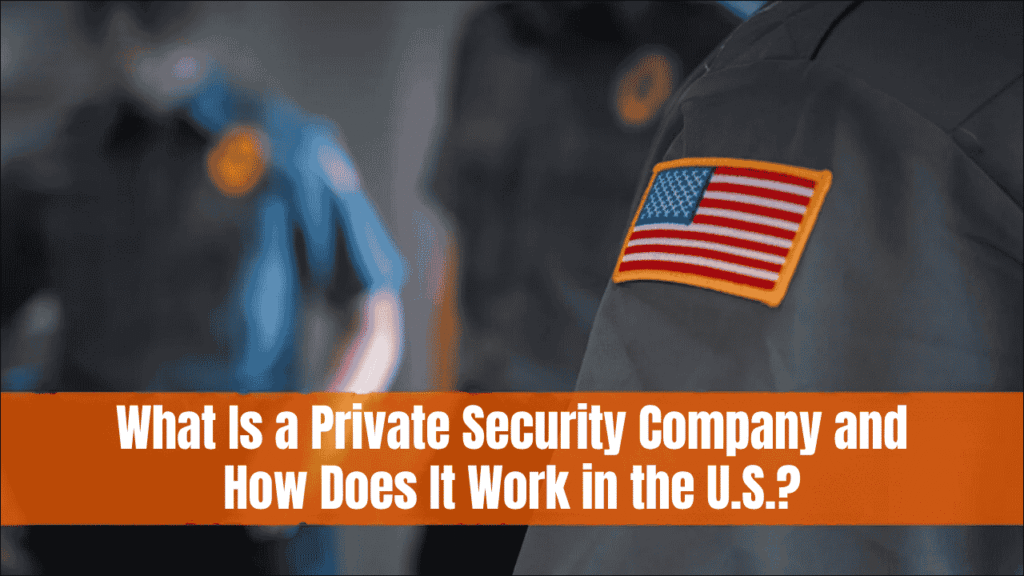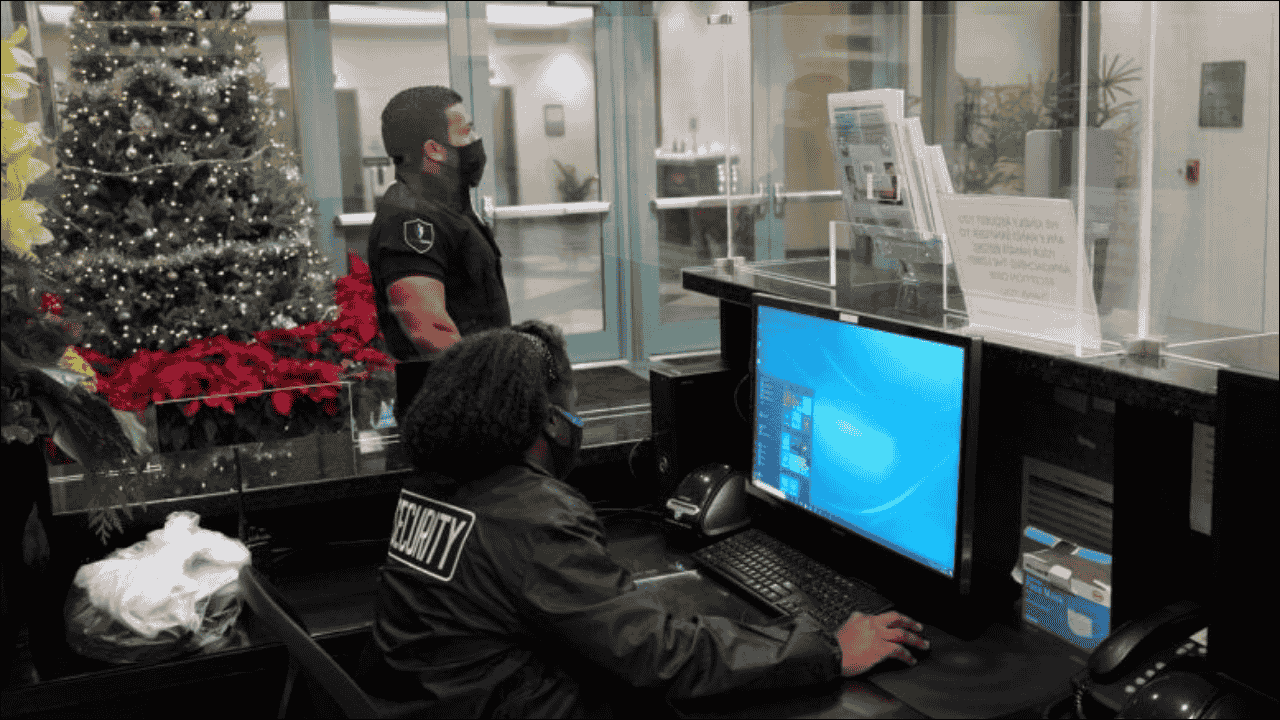
Private security companies play a major role in protecting people, property, and information across the United States. These companies are hired by businesses, individuals, and even government agencies to provide safety services that are not always covered by public police forces. Private security companies function within legal boundaries and are guided by both state and federal laws. Their operations are organized, strategic, and designed to reduce risk, deter crime, and handle emergencies effectively.
Table of Contents
Main Purpose of Private Security Companies
Private security companies are designed to provide protection that suits the specific needs of their clients. Their main goal is not to enforce public law like police officers but to prevent incidents, ensure safety, and respond quickly when needed.
Key Roles of Private Security Companies
- Crime prevention
- Surveillance and monitoring
- Access control for buildings and events
- Protection of assets and people
- Emergency response and evacuation support
- Patrolling of premises
- Enforcing rules on private property
Types of Services Offered
Private security companies provide different types of services depending on the client’s needs. These services are often offered under contract for specific periods or particular events.
| Service Type | Description |
|---|---|
| Armed Guards | Security officers with firearms for high-risk areas like banks or VIP events. |
| Unarmed Guards | Regular patrol and surveillance services without weapons. |
| Event Security | Crowd control, ticket checking, and general safety during concerts or sports. |
| Mobile Patrol Services | Vehicle-based patrolling for large properties, construction sites, or malls. |
| Executive Protection | Bodyguard services for celebrities, CEOs, or political figures. |
| Cybersecurity Support | Protection of digital assets, networks, and sensitive data. |
| Alarm Response | Quick response teams to check alarm triggers or intrusions. |
| Loss Prevention | In-store security to prevent theft or shoplifting. |
Licensing and Regulations
Private security companies in the U.S. must follow strict rules. Each state has its own set of licensing requirements. These rules are in place to ensure the safety, background, and training of guards and the legal operation of the company.
| Requirement | Details |
|---|---|
| State License | Mandatory for operating legally in most states. |
| Background Check | Required for all employees, especially armed guards. |
| Training Certification | Guards must complete training in safety, ethics, and handling situations. |
| Firearm Permit | Needed for any officer who carries a weapon. |
| Insurance Coverage | Most companies must carry liability insurance to cover possible damages. |
Training for Security Guards
Security guards in the U.S. receive training before starting work. The level and type of training depend on the state and type of service.
- Basic security training
- Conflict resolution techniques
- Emergency first aid and CPR
- Use of surveillance systems
- Firearms training (for armed guards)
- Report writing and documentation
- Legal rights and limitations
Workplaces Where Security Companies Operate
Private security services are not limited to just one type of business or location. They are widely used in many sectors.
| Sector | Security Use |
|---|---|
| Retail Stores | Shoplifting prevention and customer safety |
| Hospitals | Patient protection and handling aggressive behavior |
| Banks | Armed guards and surveillance systems |
| Airports | Baggage checks, patrolling, and emergency response |
| Schools and Universities | Campus safety and crisis handling |
| Corporate Offices | Entry control, visitor management, and surveillance |
| Construction Sites | Asset protection during off-hours |
| Hotels | Guest protection and noise management |
Technology Used by Private Security Companies
Modern security firms use advanced tools and systems to monitor and respond effectively. Technology improves the speed, accuracy, and overall safety of the services provided.
- CCTV cameras and surveillance systems
- Alarm systems and motion detectors
- Biometric access control (fingerprints, face ID)
- Two-way radios and mobile communication devices
- GPS tracking for patrol vehicles
- Drones for aerial surveillance
- Software for scheduling and incident reporting
Differences Between Police and Private Security
| Aspect | Police | Private Security |
|---|---|---|
| Employer | Government | Private individuals or companies |
| Jurisdiction | Public spaces and law enforcement | Private property and assigned areas |
| Powers | Can arrest, investigate, and enforce laws | Limited to detainment, reporting, and private rules |
| Focus | Crime investigation and public safety | Prevention, monitoring, and client-specific needs |
| Uniform and Equipment | Standard government-issued | Varies by company and job type |
How Contracts Work in Security Companies
Clients usually sign contracts with private security companies that list duties, payment, and expectations. These contracts may be:
- Short-term contracts – for events, emergencies, or temporary needs
- Long-term contracts – for ongoing services at offices, malls, or housing societies
- Custom contracts – designed based on special needs like VIP protection or sensitive data centers
Cost of Hiring Security Services
Costs depend on the type of service, number of guards, location, and length of the contract.
| Service Type | Average Hourly Rate (Approx.) |
|---|---|
| Unarmed Guard | $15 – $25 per hour |
| Armed Guard | $20 – $35 per hour |
| Event Security | $18 – $30 per hour |
| Executive Protection | $50 – $150 per hour (based on risk level) |
Benefits of Hiring a Private Security Company
- Increased sense of safety
- Quick response to threats
- Customizable protection
- Flexible service hours
- Lower risk of theft, violence, or damage
- Support in emergencies before police arrive
Challenges Faced by Security Companies
- High turnover rate among guards
- Need for constant training
- Legal limitations and lawsuits
- Coordination with local law enforcement
- Technology upgrades and cyber threats
Future Trends in Private Security
Security companies are growing rapidly in the U.S. due to rising concerns over crime, terrorism, and digital threats.
- Use of Artificial Intelligence (AI) for surveillance
- Increased demand for cybersecurity support
- Growth in home security services
- Greater focus on customer service and professionalism
- Smart uniforms and wearable tech for guards
Wrapping Up
Private security companies are essential in today’s world. Their presence helps reduce threats, protect valuable assets, and create a safer environment in both public and private spaces. By offering tailored services, using modern tools, and working within legal limits, these companies continue to support national safety efforts beyond the reach of regular police forces.





